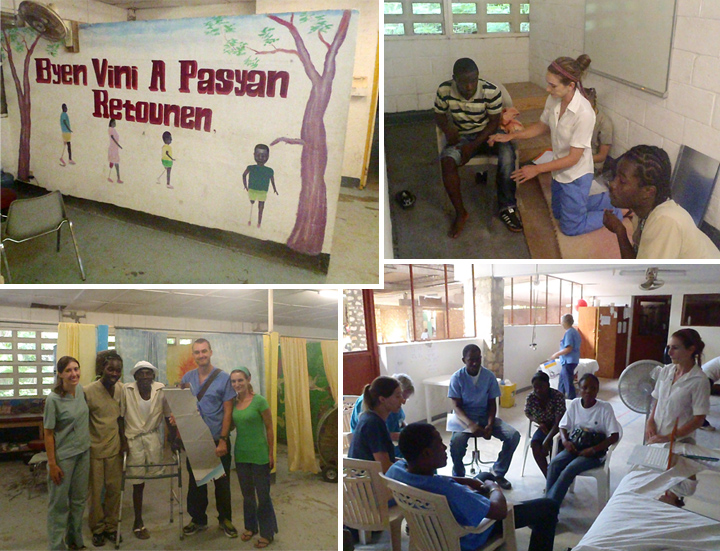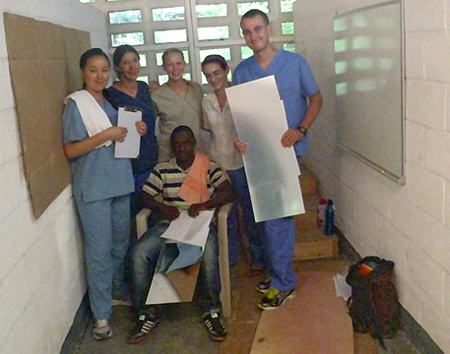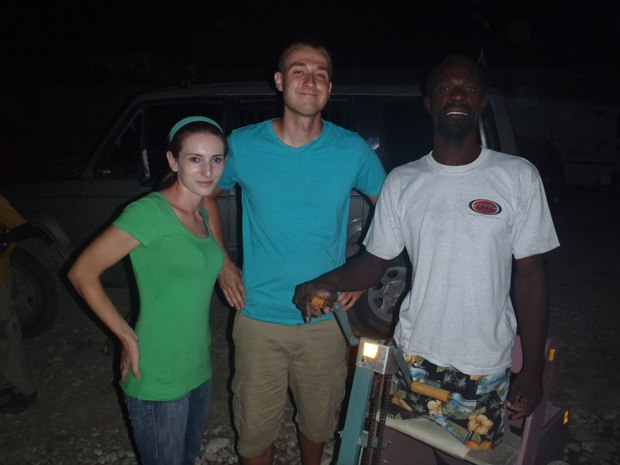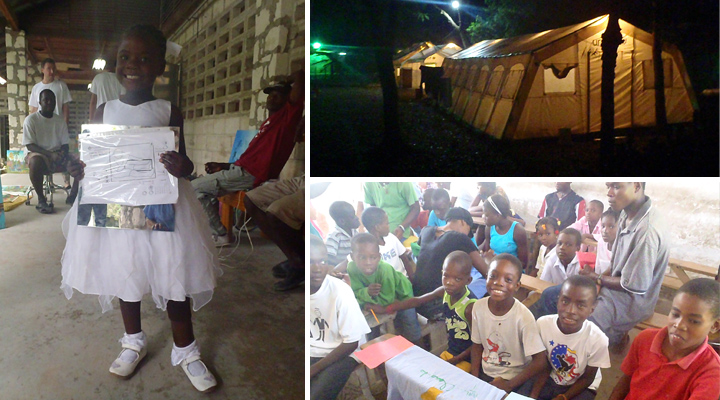By:
- Christine Clark
Published Date
By:
- Christine Clark
Share This:
Students Use Mirror Therapy to Help Relieve Phantom Limb Pain Suffered by Victims of Haitian Earthquake
UC San Diego students travel to Haiti as part of Clinton Global Initiative University

When the ground shook in Port-au-Prince, Haiti, on Jan. 12, 2010, the magnitude-7 earthquake left behind an estimated 4,000 amputees.
Helping these victims has been a goal for a group of UC San Diego students, who visited Haiti in 2011 to treat amputees using an innovative mirror-box therapy developed by V.S. Ramachandran, director of the Center for Brain and Cognition at UC San Diego.
The initiative to help victims of the earthquake in Haiti started with Elizabeth Seckel, whose desire to make a positive impact on the world was bolstered by the Clinton Global Initiative University (CGIU). In April, the campus was the host university for the 2011 CGIU, and Seckel was selected to participate.
“It sounded crazy to go to Haiti with friends and bring a bunch of mirrors,” Seckel said. “But during the Clinton Global Initiative, I met so many students who were motivated to help people around the world. It was very inspiring.”

Each year, CGIU hosts a meeting where students, national youth organizations, topic experts and celebrities discuss solutions to pressing global issues. As a prerequisite of attending the CGIU meeting, students and youth organization directors develop their own “Commitments to Action”: a specific plan of action that addresses a pressing challenge on their campus, in their community, or in a different part of the world.
Seckel has spent three years as a research assistant in Ramachandran’s lab.
“It’s gratifying to see not only that many patients are being helped but also that the fieldwork initiated by my former post-doc Eric Altschuler is being implemented worldwide by an undergraduate,” said Ramachandran
Phantom limb pain is pain felt in an absent limb or a portion of the limb. It is often experienced by an amputee as though the phantom were clenched or contorted. The mirror box developed by Ramachandran, a distinguished professor of psychology and neuroscience, allows patients to see a reflection of their intact limb superimposed to look like the missing one. The simple visual trick makes it look to the patient as though they are able to move the phantom and unclench it from a painful position.
Seckel, along with students Claude Miller, Brittany Lyng, Lina Delbruck and Nicole de Faymoreau, fulfilled their CGIU commitment during summer 2011, when the group of students volunteered in a clinic in Haiti.
“We were able to see many patients with phantom limb pain during our two-week stay,” Seckel said. “All of them had immediate pain relief with the mirror-box therapy and were incredibly appreciative. They said they were going to show all of their friends with phantom pain, as the treatment is so simple to learn.”

The students gave presentations to the doctors and physical therapists at the Port-au-Prince hospital and left 200 mirrors and prosthetics, to ensure the treatment will continue long after they left.
“CGIU asks its contributors to focus on doing something with a positive impact while also focusing on the sustainability of the project,” de Faymoreau said. “By teaching practitioners how to do mirror therapy rather than just treating patients helped give the trip a lasting impact on the region.”
Seckel has long known she wanted to treat people who suffer from chronic pain. The physiology and neuroscience major spent 10 years training as a gymnast, but at age 18 she could no longer compete because she began experiencing chronic pain–pain that the 23 year-old continues to manage every day.
Although the news of Seckel’s diagnosis was upsetting, it wasn’t a setback. It inspired Seckel to work in the medical field and through her work as a research assistant, a volunteer and an Emergency Medical Technician, she’s able to help alleviate pain in others.
For Seckel, the trip to Haiti was a life-changing experience. “I've never felt so welcome,” she said. “Locals came up to me freely and took me on tours of their schools, to the markets.”
The commitment Seckel, Miller and de Faymoreau made for CGIU continues to grow. The students plan to return to Haiti and visit the Dominican Republic in June. They will also volunteer in clinics in Vietnam and Cambodia in September to treat more amputees.

Share This:
Stay in the Know
Keep up with all the latest from UC San Diego. Subscribe to the newsletter today.



